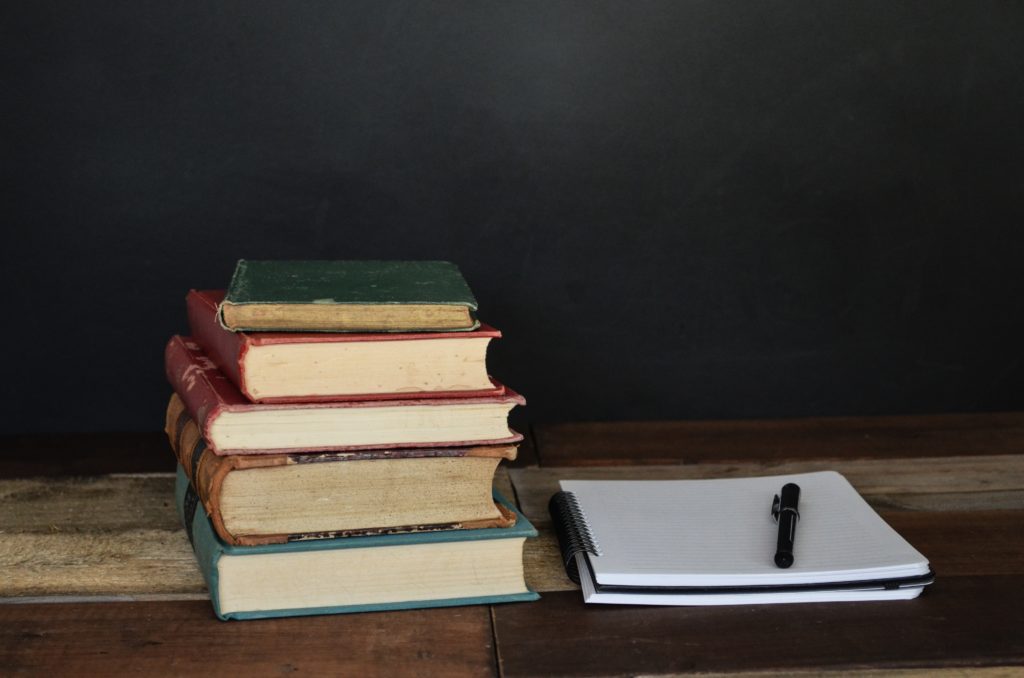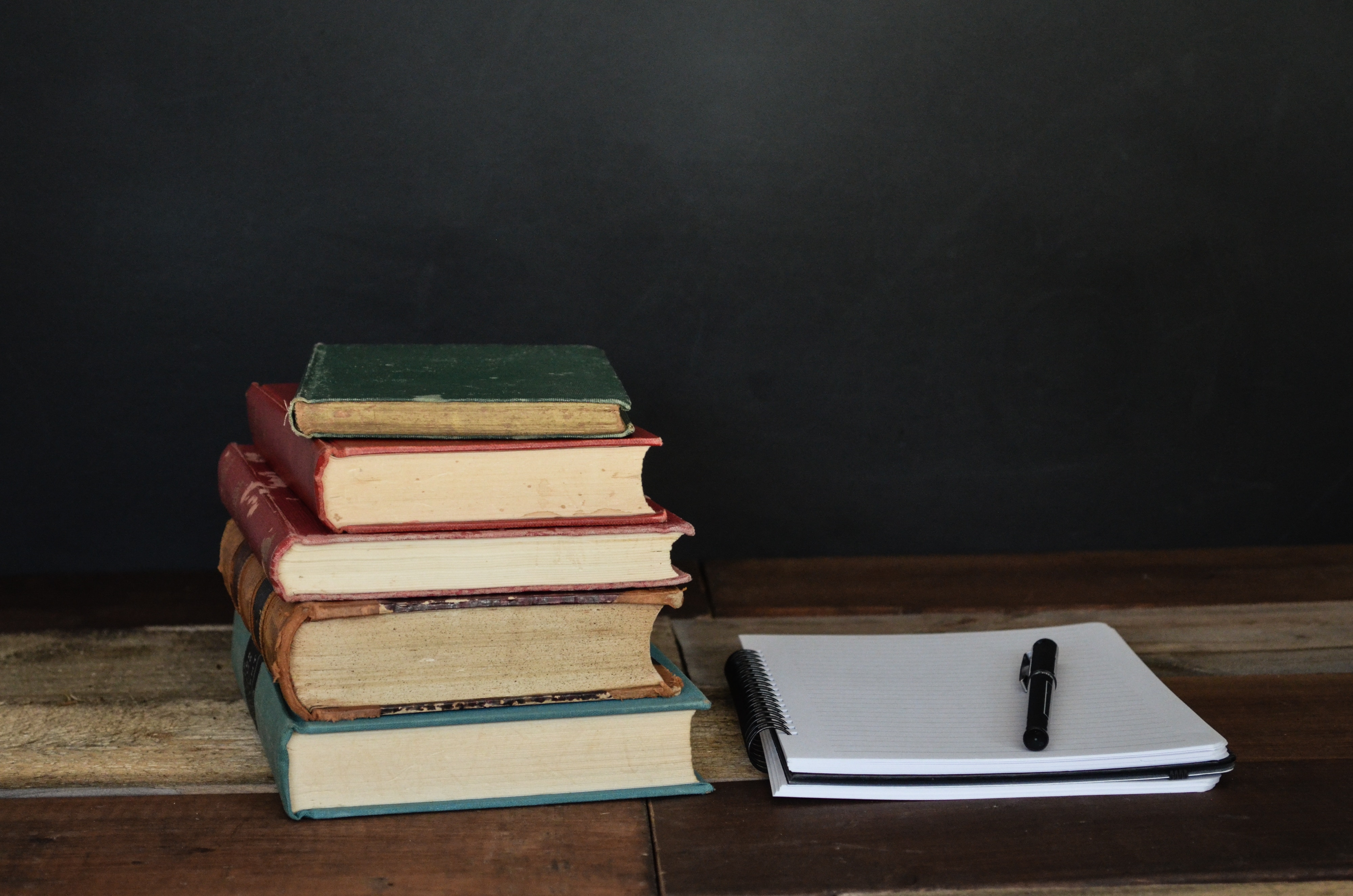The key to learning well is developing your writing and reading skills. First, we need to be able to iterate what we know about the topic, and what we are wanting to know. Second, reading is the most efficient way to become more familiar with the topic. Learning is defined as “a relatively permanent change in behavior potential that results from experience” (Klein 2012*). We see even in the scientific definition that learning produces a potential for future change. Efficient learners set their reading up for success. How? By writing.
Oftentimes, we just pick up a book because the subject seems interesting, or we enjoyed the author’s previous work. Thus, we come to a fountain of knowledge with little, if any, expectation of retaining that knowledge. More seasoned minds know that this is a setup for failure.
“Give me six hours to cut down a tree, and I will spend the first four sharpening the axe.”
Abraham Lincoln
Lincoln was no stranger to preparation for difficult tasks. He was also an avid reader. Those traits combine when we look at learning and the critical aspect of preparing to do so. The most effective way to prepare is writing. Writing engages both memory and creativity. We also clarify what it is we know and what we are looking to learn. Writing out your thoughts and understanding of the subject helps to organize your thoughts, and prepares you to fill in the gaps, and make new connections with that knowledge. This doesn’t need to be particularly long or formal; just jot down notes about what you already know on a blank sheet of paper before you begin reading.
During your reading, every ten minutes, or at the end of each chapter, take note of new information, theories, or quotes that stand out to you. Ask yourself questions about the text, “What is the author’s thesis? What information was presented? Did that information support their thesis? Did it undermine it? How does this chapter fit into the overall picture, as presented in the book, and in the wider community (science, psychology, business, etc)? What do I agree or disagree with? Has this information helped to change my mind or solidify my position? Why?”
I personally write in the margins while reading, then come back later to take more extensive notes upon finishing the book. At each session, I write out a sentence or two summarizing the passage just completed.
This back-and-forth dance with the material creates multiple pathways for memory to be stored, and crucially, retrieved. By connecting the new knowledge with your existing thoughts and knowledge, you create a powerful bond between the materials. It all starts with writing.
A lesser discussed, but enormously helpful byproduct, is that this writing habit helps your thoughts become more ordered and easily expressed. The practice of outlining, communicating and filling the gaps in thinking translates spills over into your mental processes becoming more orderly and easier to follow. When you take the time to evaluate your thoughts and communicate them well, the result is a clear message.
“Education is not received. It is achieved.”
Albert Einstein
Einstein succinctly underscored the fact that education is an active, rather than passive, process. A formal education is just the beginning. The most successful people in business, politics, and education are voracious learners, dedicated to self-educating. The drive to seek out and continually learn from the best minds is a trait common among leaders in all arenas, and an investment which compounds over time. Many business leaders in particular, see great results from reading outside of their own discipline and implementing the theories and principles gleaned into their own businesses. For example, reading poetry and fiction help develop empathy and emotional intelligence, boosting problem-solving and creativity.
The following is a sampling of prominent leaders’ learning habits and views on the importance of reading. While your goal may not be to become a titan of business, knowing what habits and values successful leaders credit for their success can help each of us to reach our individual, optimal level of success.
- Warren Buffet spends an estimated eighty percent of his day reading. He famously recommends reading 500 pages a day, every day.
- George W. Bush competed each year of his presidential terms with Karl Rove to read the most books. Bush, who gravitated towards biographies and autobiographies while also reading the Bible in full each year, tallied 95 books in 2006, edged out by Rove’s total of 110.
- The NY Times praised President Obama as the most prolific reading President since Abraham Lincoln. In the same article, Obama credits writing with helping him to process the new information and clarifying his thinking.
- In addition to General James Mattis, Elon Musk, Tony Robbins, and nearly every other successful leader asked, cite their reading habits as vital.
“Not all readers are leaders, but all leaders are readers.”
Harry Truman
Leaders read. Successful leaders constantly work to improve themselves, and the best way to do that is to acquire new information. A new skill, philosophy, or perspective, all combine to help you to tackle problems, develop a creative strategy, or forge a new path toward success. It’s no wonder self-education is cited as one of the greatest predictors of success!
Most of the people mentioned above focus on reading non-fiction; especially sciences, self-improvement, and biographies. Several did mention using fiction as relaxing escape reading, which was also proved useful for understanding perspectives of other people. It all blends together to help you create new ideas.
Upon finishing a book, write about it. You’ve taken notes at intervals during your reading. Now, do a final walk-through to revisit your notes, highlights, arguments, and everything else you said along the way. Summarize and note your final impressions and takeaways from the material.
“Knowledge is potential power.”
Napoleon Hill
Knowledge being only potential power places the burden on us to implement that knowledge. The most critical aspect of learning is, of course, putting that knowledge to use. Just as the key to becoming fluent in another language is to use the language regularly, so we must incorporate our new knowledge into our lives. Act on what you are learning. This could be as simple as journaling or extend to teaching that knowledge to others.
In my own reading, for example, I love learning about the history and evolution of foods we use everyday. So, I journal and document both what I’ve learned in books, and how implementing that knowledge in my cooking turns out. Each time I read a new book I take notes on the science behind the food and flavor combinations. Every time I experiment with a flavor, technique, or combination, my husband and I discuss it and I take notes for the next go around. This is knowledge acquisition in an informal setting, but implemented in my daily life, so I am more likely to retain it.
This same principle can be applied to habit building, science, mindset, or any subject you choose to study. In any case, the most important part of your learning experience will be what you choose to do with that information. It is only potential for change until you act on it.
“The more I learn, the more I realize I don’t know.”
Albert Einstein
Another result of learning is realizing just how many answers we don’t have, and the humility to admit as much. This humble commitment to increase and improve our understanding is vital to our individual, societal, and global advancement. In practice, a desire to understand and better live in the world around us drives the scientific community, whose findings are then implemented by the tech industry, which disseminates through culture, pulling us all forward into the future. Knowledge acted upon, in a very real way, changes the world.
The two skills of reading and writing serve to compound our knowledge and spill over into other areas of our lives. These are two skills anyone can improve, with a bit of discipline and practice. By developing our writing and reading skills, we gain not only new knowledge, but the tools of increased clarity, more organized thoughts, and more effective communication in our homes, businesses, and communities.
*Learning: Principles and Applications, 6th Edition by Klein, Stephen B. 2012

Photo by Debby Hudson on Unsplash




